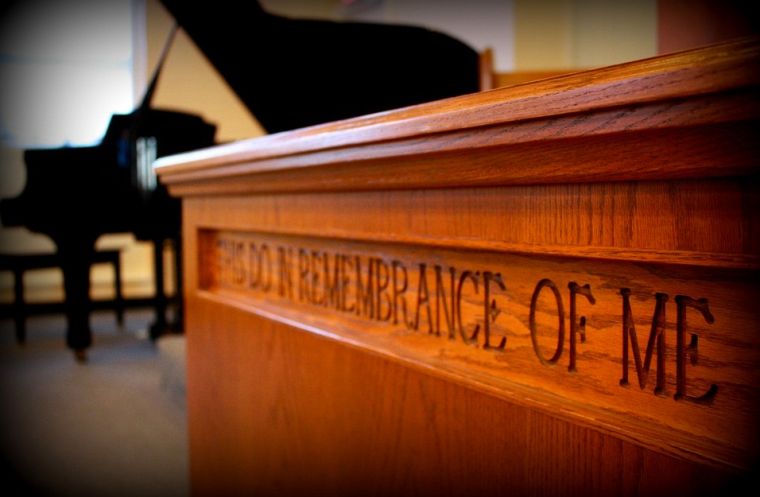Which matters most: Preaching, music or communion?

Church buildings are fascinating. Not in the I-wonder-if-this-is-Early-Perpendicular way, though that has its points. They're interesting in what they say about what we value, in worship and in church life.
There's a whole architectural history in this, but here's the point: what we look at when we sit in our chair or our pew says something about what we think church is all about.
It doesn't always work like this, I know. Some congregations worship in very informal settings where they don't have many options. Some have inherited buildings that don't really reflect what they are today. But mostly, there's a choice – and it says something about what we value.
In the UK, there's a traditional style of Nonconformist chapel that has a big, raised central pulpit. Underneath it is the communion table. It isn't just convenient: it says that preaching the Word is more important than anything else.
Other denominations, like the Church of England, play it differently. The pulpit's off to one side. The communion table, or altar, is in the middle. In historic churches it's often at a distance from the congregation, behind a screen; it's a Christian 'holy of holies', to be approached with deep reverence.
In many modern evangelical churches, it's neither table nor pulpit that dominates, but music group. This is partly practical: a drum kit and keyboard take up a lot of room, and if you have guitarists and singers too you have to have somewhere to put them. But it's a choice, too – and it often says something about how modern church music is about performance rather than participation, ironically echoing more liturgical traditions dominated by organs and robed choirs.
So which is more important – preaching the Word, singing the songs or sharing communion? Should the pulpit, the drumkit or the table be at the centre?
Now, I know: they're all important. Teaching, sung worship and fellowship all build up the church. Lose one and you're lacking something vital. We need them all.
But as someone who grew up in one of those Nonconformist chapels where the communion table was very definitely subordinate to the pulpit, I have to say I think those Victorian architects got it wrong. Here are my reasons for putting the communion table at the heart of church.
1. It focuses our minds on the death of Christ.
We are who we are because we believe Christ died for us. However we explain the mechanism, that is – quite literally – crucial. And the table, whether it has the elements of communion laid out on it or not, is a permanent reminder of why we gather Sunday by Sunday. The bread and wine recall to us the body and blood of Christ. It's at this table that we say most clearly what we believe.
2. It forces us to be reconciled to each other.
It's a strong way of putting it, but that's what it does. We can't share bread and wine with people we hate. Churches are made up of people who believe, often passionately. Sometimes that belief turns sour. We end up fighting over trivial things, and the body of Christ becomes sick. But if we sit down together at the table of the Lord, taking seriously Paul's command to examine ourselves, we are obliged to lay down our resentment and anger. If we don't, we lay ourselves open to a heavy judgment.
3. It feeds our souls.
There's a horizontal dimension to communion – we do it with other people, and it's a fellowship meal. It makes us a church, rather than a fairly random gathering of people who share the same opinions. But there's also a vertical aspect. It is a gift from God. We are united not just to our fellow-believers, but to him, through Christ. And the physical act of eating and drinking means that our whole selves are his concern – bodies as well as souls. There's no part of us God does not care for, and no part of us he does not claim.
Christians have fought and argued over communion as they have over every other doctrine. All too often, the rite that should be the deepest affirmation of unity has broken and divided the Church. But it is a blessing, a prayer and a statement of hope: we do it "until he come". And when the preacher runs out of words and the musicians run out of songs, we'll still have bread and wine.
Follow Mark Woods on Twitter: @RevMarkWoods











